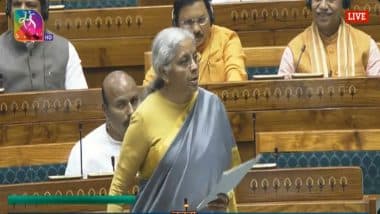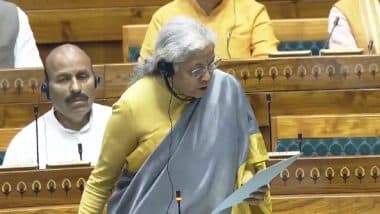The current financial year is ending on March 31, 2022. There are several changes in the income tax rules effective from FY 22-23. some of the major changes effective from 1 April 2022 will include both addition of new rules as well as reforms in existing ones. Income tax on crypto assets, filing of updated returns, new tax rules on EPF interest, and tax relief on Covid-19 treatment are some of the major changes that await us in the next financial year.
Major changes in income tax rules from April 1:
1. 30 per cent tax on profits via digital assets’ sale
All forms of virtual digital assets, or crypto assets, that are sold at a profit will attract a tax of 30 per cent from April 1. The announcement was made by finance minister Nirmala Sitharaman in her budget speech last month. Cryptocurrency Tax in India: Lok Sabha Approves 'Crypto Tax' Amendments
Meanwhile, the 1 per cent TDS will come into effect from July 1, 2022. The threshold limit for TDS would be ₹50,000 a year for specified persons, which include individuals/HUFs who are required to get their accounts audited under the I-T Act, Livemint reported.
2. Crypto losses cannot be set off against crypto gains or other assets
The Indian government has tightened norms for crypto by disallowing losses incurred in a particular digital asset to be set off against income from another version of a crypto holding. The government won’t allow tax breaks on infrastructure costs incurred while mining crypto assets as it won’t be treated as the cost of acquisition.
3. Filing of updated ITR to eliminate errors in initial file
Taxpayers will be able to file an updated return from April 1 to eliminate errors or mistakes done in income tax returns. The updated return can be filed within two years from the end of the relevant assessment year. Cryptocurrency Tax Rules in India: Crypto Assets to be Taxed From April 1; Here's All You Need to Know
4. NPS deduction to state government employees
State government employees will now be able to claim deduction under Section 80CCD(2) for NPS contribution by the employer up to 14% of their basic salary and dearness allowance, which is in line with the deduction available to the Central government employees under the said section.
5. Tax on PF account
The government has decided to tax the interest income from the Provident Fund account from April 1. If the contribution is below ₹2.5 lakh, no tax will be levied. However if the contribution exceeds ₹2.5 lakh - then the interest income will be taxed.
6. Tax relief on Covid-19 treatment expenses
As per the press release in June 2021, tax exemption has been provided to persons who have received money for Covid medical treatment. Likewise, money received by family members on the death of a person due to Covid will be exempt up to ₹10 lakh for family members if such payment is received within 12 months from the date of death. This amendment will be effective retrospectively from April 1, 2020.
7. Tax relief to persons with disability
When the parent or guardian of a differently-abled person can take an insurance scheme for the latter, they would be eligible to deduction from gross income before tax subject to certain conditions.
(The above story first appeared on LatestLY on Mar 31, 2022 06:45 PM IST. For more news and updates on politics, world, sports, entertainment and lifestyle, log on to our website latestly.com).













 Quickly
Quickly





















